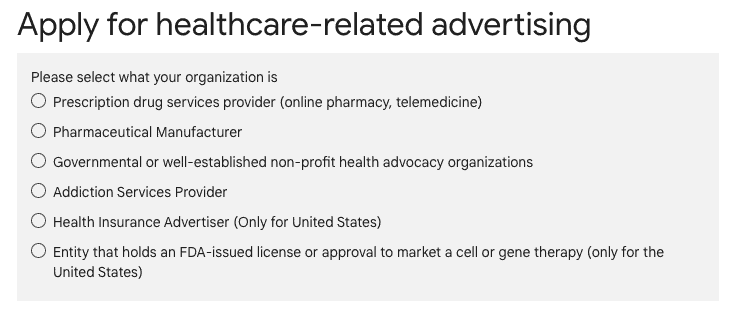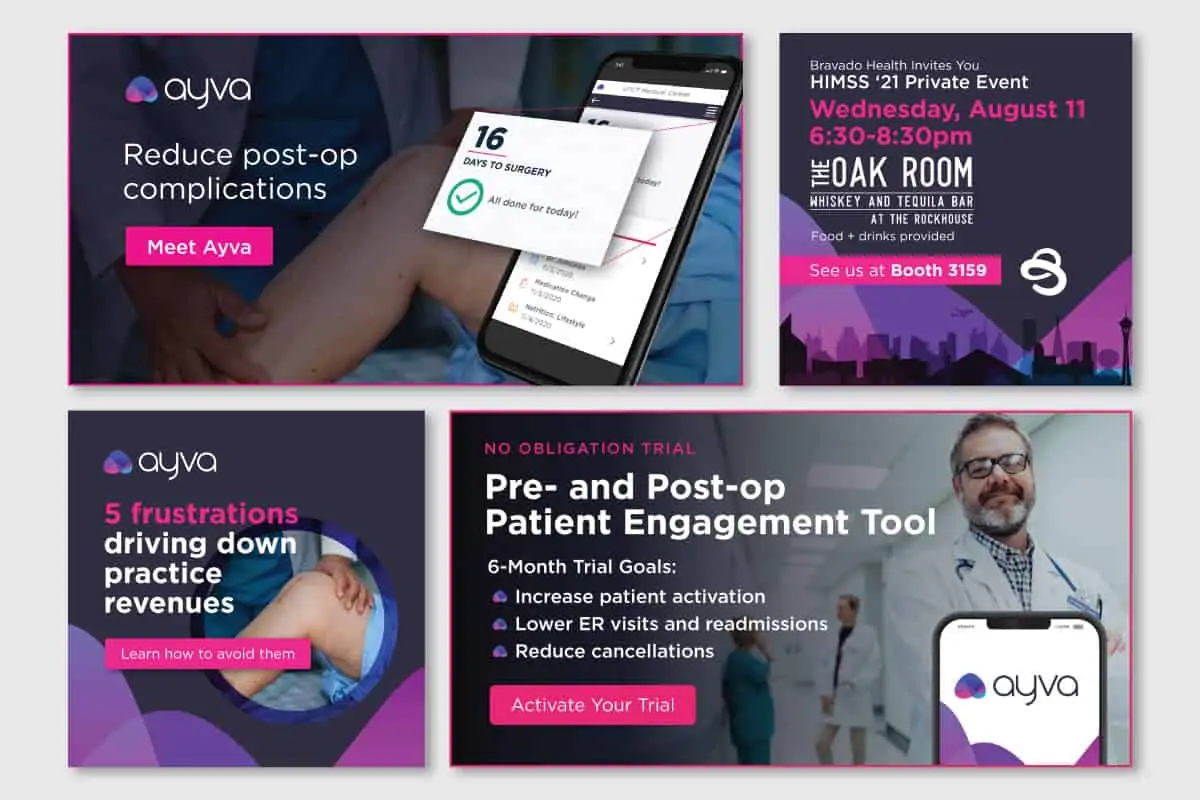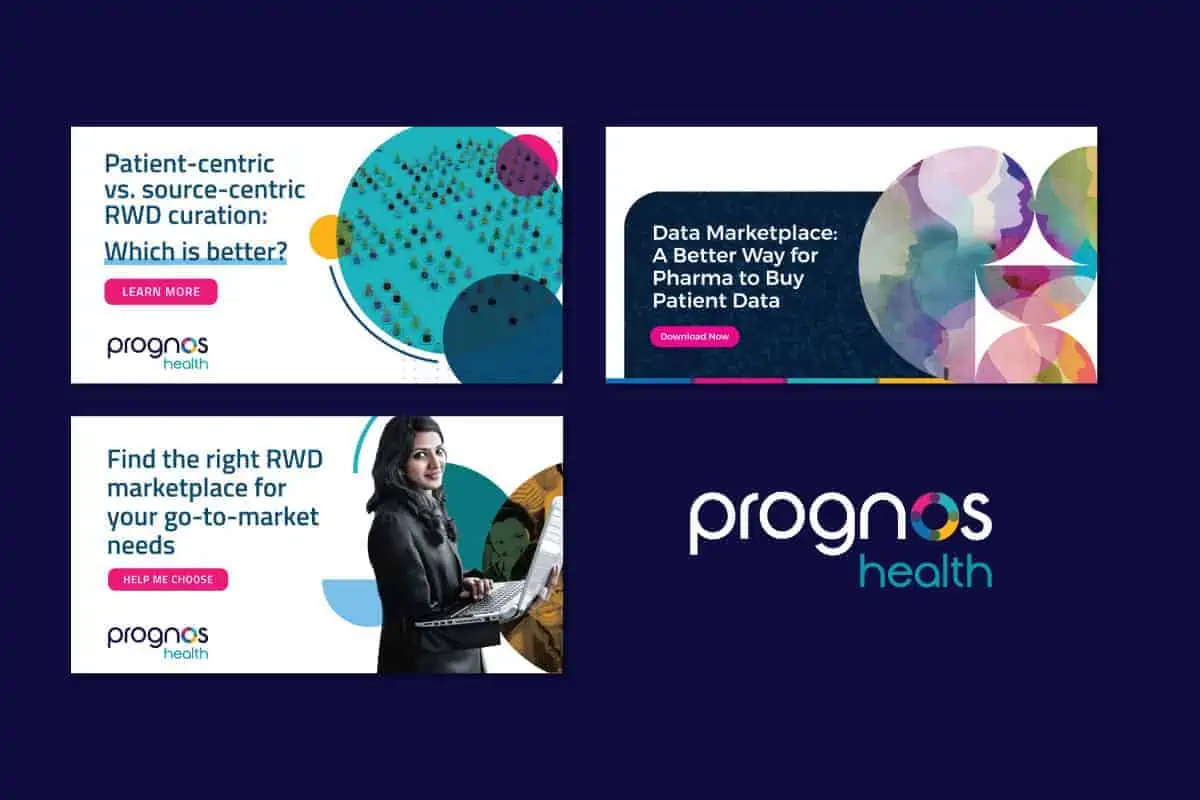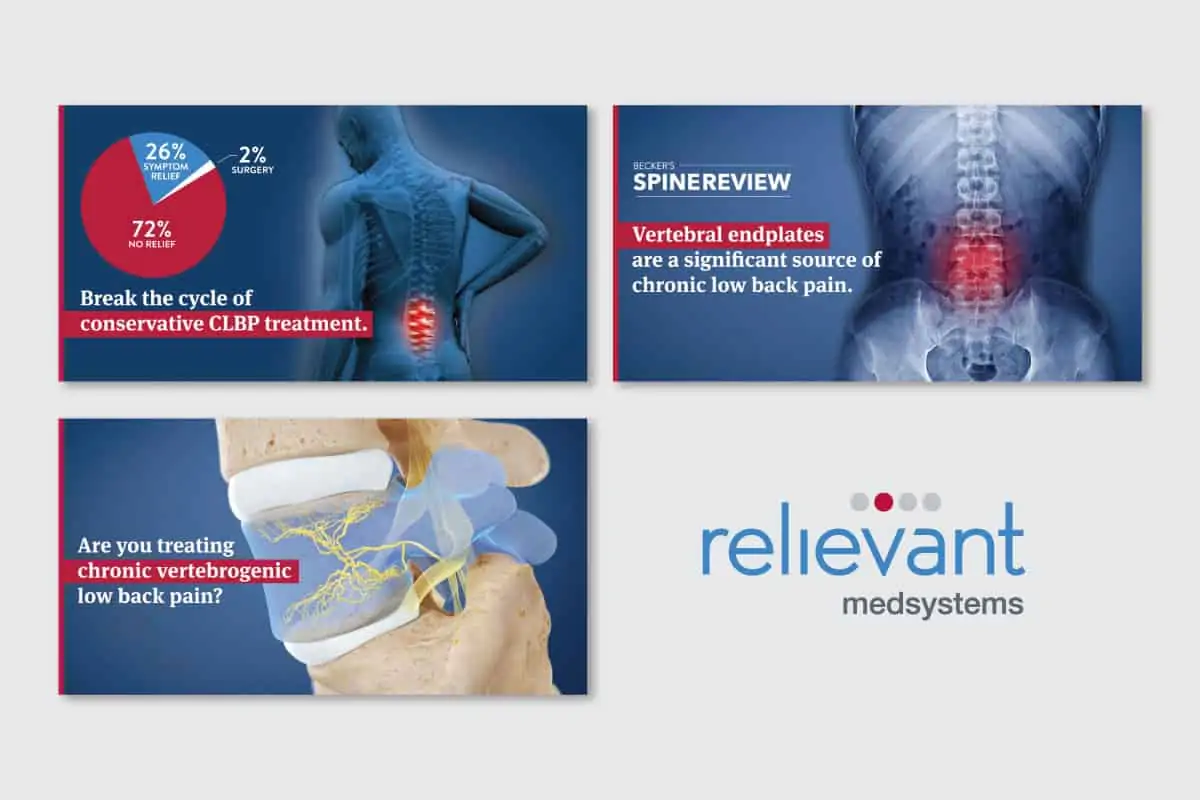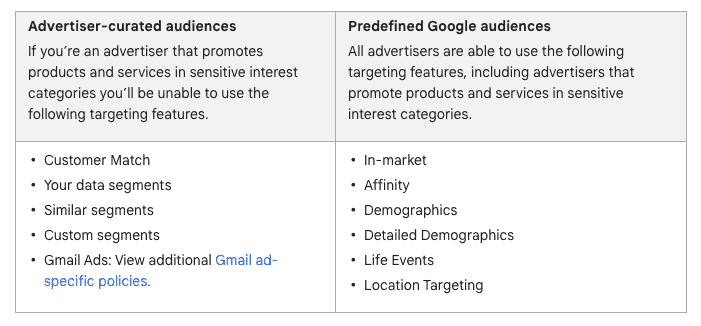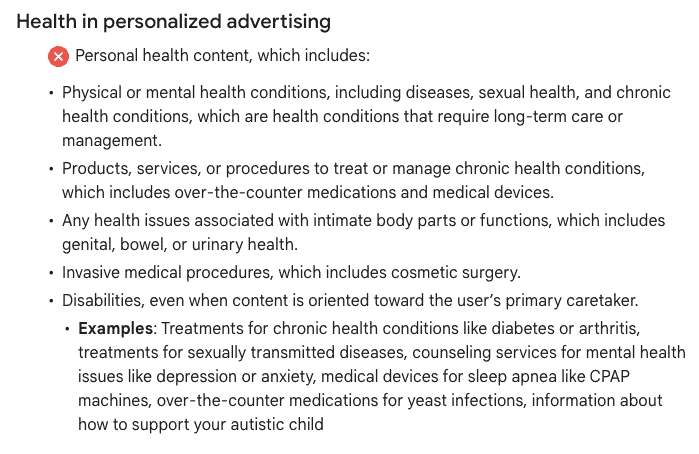Note: This post was updated on 11/20/2023 to reflect current information. Check back for future updates.
All healthcare companies will run into Google Ads restrictions, but just how many and how restrictive they will be depends on the subject matter of the landing pages and the nature of the products and services promoted.
So what exactly can healthcare-related advertisers do with Google Ads? And is advertising with Google worth it? The short answers are “a lot” and “yes.”
Google Ads guidelines
Before we get to the dos and don’ts for medical device and pharma companies, let’s take a closer look at the Google Ads restrictions and guidelines.
Healthcare ad restrictions
Google has strict guidelines for healthcare and medicines that impact pharmaceutical manufacturers and providers of healthcare-related products and services, including prescription drug sales, restricted drug terms, clinical trial recruitment, health insurance, and other topics.
If you plan to advertise products or services in any of these restricted categories, you must first complete this application to become a certified healthcare-related advertiser. The application itself is painless, but approval is ultimately up to Google.
If you are approved as a healthcare-related advertiser, you may be allowed to include these restricted terms in your ads and landing pages. You can also access special features, such as custom display URLs, that will help your ads stay compliant with regulations.
Coronavirus (COVID-19) ad policies
In response to the COVID-19 pandemic, Google imposed restrictions on coronavirus-related advertisements under its “Sensitive Events Policy”. As of May 2023, those restrictions have been lifted. Advertisers can now run ads for COVID-19 related terms provided the ads meet all other policies and guidelines.
Cell and gene therapies
Any advertising for speculative or experimental medical treatment, including stem cell therapy, cellular therapy, gene therapy, regenerative medicine, and platelet rich plasma is not permitted unless the advertiser provides proof of FDA licensing or approval.
Personalized advertising restrictions
On the Google Display Network, most of the challenges medical device and pharma companies will face with Google Ads restrictions is related to personalized advertising, which Google defines as ads that employ “online user data to target users with more relevant advertising content.”
Under the personalized advertising policy, advertisers cannot serve ads that fall into “sensitive interest categories,” including personal hardships, identity and belief, and sexual interests. Certain features are impacted differently by this policy:
Note that three Google Display Network targeting methods are not included on the prohibited feature list for personalized advertising: keyword, placement, and topic targeting.
However, do not take this as permission for your med device or pharma company to use these three targeting methods. I have spoken with Google Ads reps who cannot confirm whether these targeting methods are allowed, and who have seen Google both approve and disapprove ads using these targeting methods. These are the inconsistencies our agency has encountered over the years.
The intersection of health and personalized advertising restrictions
Now let’s look at Google Ads guidelines on using health in personalized advertising.
Even if you don’t think your medical device or pharmaceutical product fits the descriptions in this list, Google likely doesn’t see it the same way. Google reserves the right to disapprove any of your ads and landing pages if it deems your content falls into the overall “health” category, and from my experience, they cast a pretty wide net over “health.”
There does appear to be some wiggle room as mentioned above, so sometimes the best way to find out what is and is not allowed is to set up a test campaign and see if Google approves it.
Now that you have an understanding of the underlying policies let’s look at a few specific features of Google Ads and what pharma and medical device advertisers can and can’t do.
Stop wasting ad spend on clicks that don't convert.
Contact Clarity Quest
Google search ads dos and don’ts
The Google Ads Search Network serves text ads on the Google search results pages. For the most part, med device and pharmaceutical marketers will have to follow the healthcare and medicines guidelines discussed in the first section above.
You will have to fill out the application to be a certified healthcare-related advertiser before listing any restricted drug terms or active ingredients in your ads or landing pages.
One Search Network feature you will not be able to use is remarketing lists for search ads (RLSA) as it falls under the personalized advertising restriction.
Medical device advertisers need to be clear in their ad copy and landing pages that they are marketing to healthcare professionals, not patients. Even then, your ads may be disapproved. If you run into this issue, call your Google Ads rep to clarify your target audience. They may be able to lift the restriction for you.
Google display ads dos and don’ts
The Google Display Network allows advertisers to serve text, image, and video ads on their collection of over 2 million websites and 650,000 mobile apps, including Gmail, YouTube, media giants, specialty publications, and niche content communities.
You have to be careful about the type of imagery you use in your ads, especially if you use photography. We’ve had photos of a clinician administering a COVID-19 nasal swab flagged as “adult content”. Illustrations are easier to get approved than photos in display ads.
The healthcare-related advertiser certification won’t help you overcome any of the personalized advertising restrictions, so remarketing lists, affinity and other audiences, demographic, and location targeting are still off the table.
If remarketing is part of your marketing strategy, you will have to look for an outside remarketing platform that does not have the same restrictions as Google and can do more robust remarketing campaigns for healthcare companies.
Google Ads or LinkedIn Ads for healthcare marketing?
Both channels have their pros and cons, and their success depends on the intent of the searcher/user and where they are in the sales cycle. Check out our post on Google Ads versus LinkedIn Ads for B2B healthcare.
Is PPC right for you?
Don’t let these guidelines and restrictions stop you from executing a pay-per-click advertising campaign for your healthcare product. With the right knowledge and an experienced PPC partner, you can make an impact and meet your goals with online advertising.

